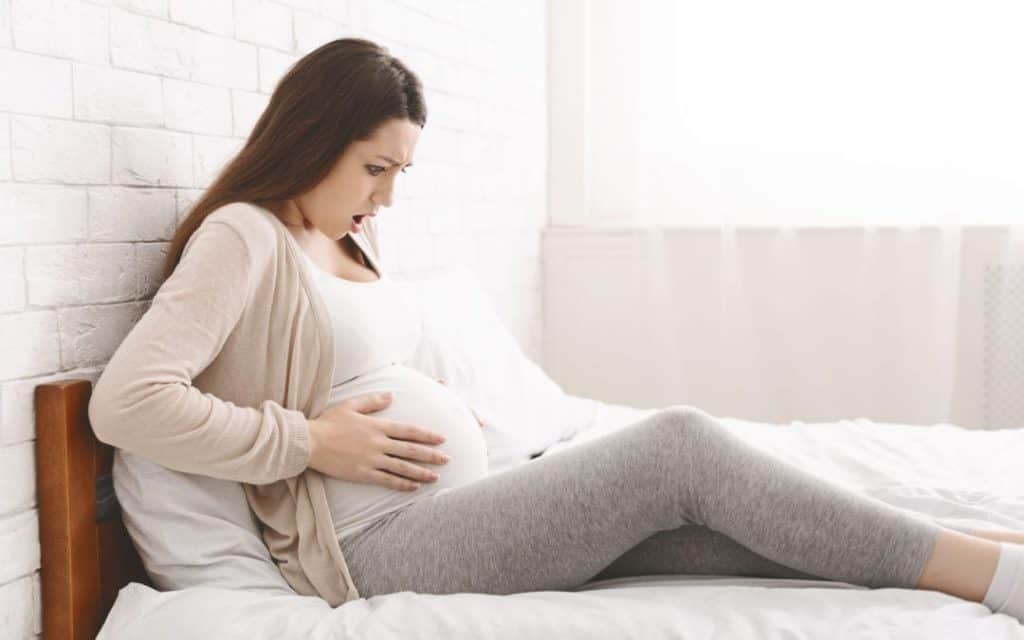
Table of Contents
As a pregnant woman, you might feel intense but irregular contractions in your uterus weeks before your actual due date called Braxton Hicks contractions or ‘false contractions’. While you may be led to believe that you are going into labor, it actually is your body just getting ready for the labor and delivery. Braxton Hicks contractions are usually first felt around the end of the second trimester or the third trimester (mid-pregnancy) and they increase in intensity and frequency as the pregnancy progresses.
You most likely have already heard of Braxton Hicks but might still have a lot of questions unanswered around it. If so, you have arrived at the right place.
In this guide, we will discuss everything you need to know about Braxton Hicks contractions. We will answer-
- What are Braxton Hicks contractions?
- Why is it called Braxton Hicks contractions?
- What causes Braxton Hicks contractions?
- What do Braxton Hicks contractions feel like?
- When do Braxton Hicks contractions start?
- How long do Braxton Hicks contractions last?
- Braxton Hicks vs. Real contractions?
- What do Real Labor contractions feel like?
Brownie points: We also have some tips at the end to help Braxton Hicks contractions!
So, let’s get started, shall we?
1. What are Braxton Hicks contractions?
Braxton Hicks contractions, in two words, can be summed up as ‘false alarm.’ It is referred to as the tightening of the uterus prior to actual labor in your body’s pursuit to prepare you for the big day when actual labor arrives. It is also not proven yet but most doctors believe that Braxton Hicks contractions, during the late stages of pregnancy, can also help the cervix to soften and dilate in order to get ready for the delivery.
It usually is difficult for first-time mothers to identify between an actual labor contraction and a Braxton Hicks contraction, but let’s get to that later in the blog.
2. Why is it called Braxton Hicks contractions?
Braxton Hicks contractions are named after the doctor who first identified the phenomenon and documented it back in 1872: John Braxton Hicks.
3. What causes Braxton Hicks contractions?
While they might sound like a rude joke, Braxton Hicks contractions actually are a beautiful example of how amazing and unbelievable the human body. While it is not clear what causes the contractions, it is your body naturally preparing itself for when the infamously painful labor contractions take place pre childbirth.
This common part of pregnancy, however, can be triggered by the following causes-
- Heavy Exertion
Intensive exercise or bodily exertion in any form can cause the uterus to contract and give you these contractions. This is also why pregnant women are advised only light exercise during the tenure. - Dehydration
Dehydration, even in non-pregnant human beings, is known to cause cramps in your body, especially in the calves. In a pregnant woman, moreover, dehydration can lead to cramping of the uterus or even cause preterm labor. Hence, regular hydration is advised for pregnant women. - Sexual Intercourse and Full Bladder
An orgasm or a full bladder can also cause the sensation of a contracting uterus. - UTI
UTI or Urinary Tract Infection can also cause the onset of Braxton Hicks. It is always recommended to reach out to a doctor if you feel contractions while suffering from UTI. The most common cause of UTI is a burning sensation while urinating.
4. What do Braxton Hicks contractions feel like?
Just like all women feel period cramps differently, Braxton Hicks contractions are felt differently by all women too. While some women might not feel the contractions at all, some might feel their belly tightening sans any pain while some others might feel discomfort and pain. Also, women who have already had a baby/babies before tend to feel Braxton Hicks contractions more than novice mothers do.
5. When do Braxton Hicks contractions start?
Again, similar to the last answer, there is no predefined timeline to when Braxton Hicks takes place. They might even start pretty early in the pregnancy though you’d begin to notice them only after the 20th week. In most women, Braxton Hicks contractions are most felt in the third trimester until the end of the term.
6. How long do Braxton Hicks contractions last?
The contractions can last anywhere between 30 seconds to up to two minutes. However, they are irregular, randomly occurring, and can come unannounced.
7. Braxton Hicks vs. Real contractions?
The most relevant question which is probably in the mind of every reader by now is “how do I even differentiate Braxton Hicks from real labor contractions!?” For your relief, this is easy mamma!
Braxton Hicks contractions are –
- Irregular contractions
- Short-term duration contractions
- Contractions that go away!
Unlike actual labor contractions, Braxton Hicks contractions fizzle out, they are random and irregular. They typically tend to go away just by drinking a glass of water or by changing your position.
Real Labor Contractions, however, are-
- Regular and occur more often with greater increased intensity with each passing contraction
- Typically painful and more obviously felt or noticeable than Braxton Hicks contractions
- At times accompanied Bloody Show (a blood-tinged discharge as a result of a dilated cervix), losing the mucus plug, and even water breaking
- They do not go away- no matter what you do!
However, at any point in time, if you are convinced that your contractions are labor contractions and not Braxton Hicks – even if the online guides suggest otherwise and even if you are too early as per the suggested timelines -it is recommended that you reach out to your doctor immediately.
Final Takeaway
As a final word, before you go, here are some brownie tips that could help relieve Braxton Hicks contractions-
- Hydrate yourself: usually, drinking a glass full of water can help Braxton Hicks contractions to ease out
- Change positions
- Cut yourself some slack: If you have been working too much or have been putting your body under exertion, Braxton Hicks contractions are more likely to be felt. So, dear mamma, it is time to take a step back and just relax!
- Implement the breathing and relaxation techniques from your childbirth class to manage the pain and even condition your mind for the actual labor contractions
If the contractions do not go away no matter what and are getting more intense with each new contraction, ring your doctor and a loved one immediately!
Braxton Hicks Contractions FAQs:
1. Does baby move during Braxton Hicks?s?
2. Does movement trigger Braxton Hicks contractions?
3. What is the 5 1 1 rule for contractions?
Reviewed By:

Esha Chainani - Obstetrician and Gynaecologist
Dr. Esha Chainani is an Obstetrician, Gynaecologist, and laparoscopic surgeon who aims to break the stigma around women’s health by advocating an inclusive and open practice of obstetrics and gynecology and an author of several internationally published research papers and health articles in the media like the Swaddle.
She also founded Premaa, a non-profit to reduce maternal morbidity and eventual maternal mortality by providing lower-income pregnant women living in urban areas with cell phone access through an app that can feature an entire section about contraception as well for a whole gamut of reproductive health.
A panel for multiple health sessions including with the UN, USAID, BMC, gender at work, and multiple non-profit organisations, and is on the advisory panel of the South Indian medical students association.




